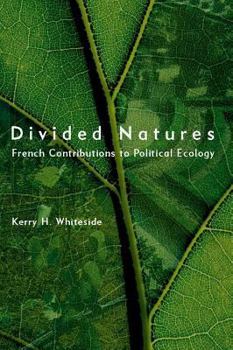Divided Natures: French Contributions to Political Ecology
Select Format
Select Condition 
Book Overview
In this book Kerry Whiteside introduces the work of a range of French ecological theorists to an English-speaking audience. He shows how thinkers in France and in English-speaking countries have produced different strains of ecological thought and suggests that the work of French ecological theorists could lessen pervasive tensions in Anglophone ecology.
Much of the theory written in English is shaped by the debate between anthropocentric ecologists, who contend that the value of our nonhuman surroundings derives from their role in fulfilling human interests, and ecocentric ecologists, who contend that the nonhuman world holds ultimate value in and of itself. This debate is almost nonexistent among French theorists, who tend to focus on the processes linking nature and human identity. Whiteside suggests that the insights of French theorists could help English-language theorists to extricate themselves from endless debates over the real center of nature's value.
Among the French theorists discussed are Denis de Rougemont, Denis Duclos, Ren Dumont, Luc Ferry, Andr Gorz, F lix Guattari, Bruno Latour, Alain Lipietz, Edgar Morin, Serge Moscovici, and Michel Serres. The English-language theorists discussed include John Barry, Robyn Eckersley, Robert Goodin, Tim Hayward, Holmes Rolston III, and Paul Taylor.





